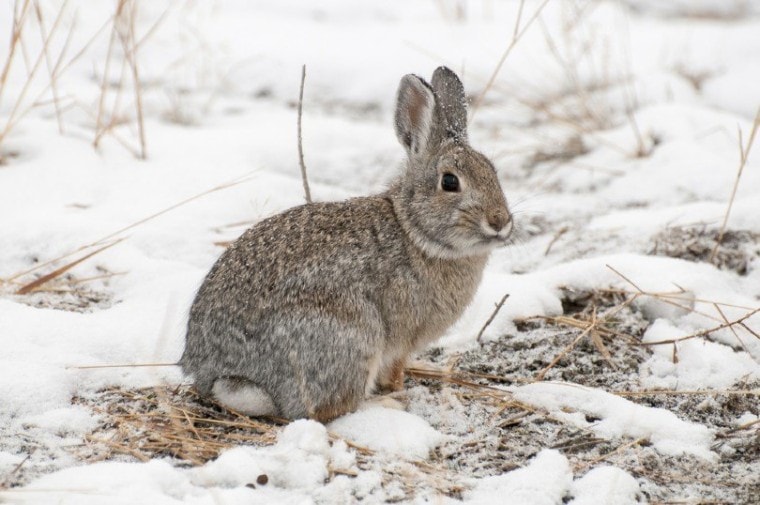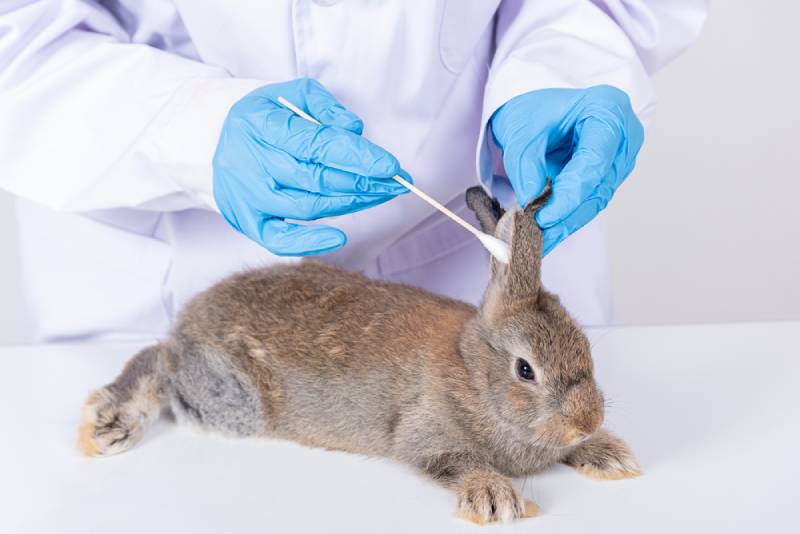
Rabbits live both in captivity and in the wild. All rabbits share the same lifestyle habits but may display different behaviors and temperaments depending on where they live. People who own rabbits as pets know that domestic rabbits do not hibernate during the winter because there is no need to. But do wild rabbits hibernate when the winter months come upon them? This is a great question that deserves a thorough answer. But the short answer is no, rabbits do not hibernate whether in the wild or in captivity.

Rabbits Do Not Hibernate — Here’s Why

Hibernation is the act of going into a long, deep sleep to conserve energy due to a lack of food during the winter months. During hibernation, an animal’s bodily functions decrease, including the heart and breathing rate, and more importantly, the metabolism rate slows to a crawl to ensure that the animal can survive until the food is available again.
People do not typically see wild rabbits during the winter because they are not running around, exploring, and foraging as they do during the other times of the year. This is because they are keeping warm inside their dens just like we humans do in our homes. Rabbits are not built to hibernate. They also do not migrate like birds and other animals do.
They typically stick to living in the same area where they are born throughout their lives. During the winter, they scavenge for food underneath the snow where possible, and they eat a great deal of tree bark. They also hide away in their homemade huts or caves to stay warm between feedings. Inside their homes, they ingest feces. While they can stay inside for days at a time, they never hibernate.

Helping Rabbits Survive During the Winter Months
If you live near wild rabbits, there are a few things that you can do to help them survive during the winter months if you would like to see them thrive the rest of the year. First, you can grow winter-hardy plants that rabbits can forage on, such as:

These plants can help bunnies in your area survive until the snow melts and the seasonal plants begin to flourish. Just make sure not to plant these perennials on your own property, or you may find rabbits cruising through your gardens during the spring and summer when you are growing food for your family. Plant these rabbit foods on the outskirts of your property and on public, community lands in your area a couple of months before winter sets in.

Protecting Your Property From Rabbits During the Winter Months

You can keep rabbits from making your trees or shrubs their home during the winter months by surrounding them with chicken wire. This will help repel rabbits and encourage them to find a winter home elsewhere, away from your property.
Make sure that you are not growing any perennial plants that would attract rabbits, to minimize the chance that they will make your yard a home. You can plant perennials in places surrounding your property to keep rabbits busy and safe without risking your own yard becoming a habitation center.

Conclusion
Rabbits do not hibernate so they must survive the winter months in other ways. We never have to worry about domestic rabbits during the winter because they are safe and protected due to their caregivers. However, wild rabbits do not have the benefit of human protection for the most part. Therefore, they tend to stick with what they know and may infiltrate your yard. You can either put up with it or implement protection measures like you would during the spring, summer, and fall months.
Featured Image Credit: moosehenderson, Shutterstock









